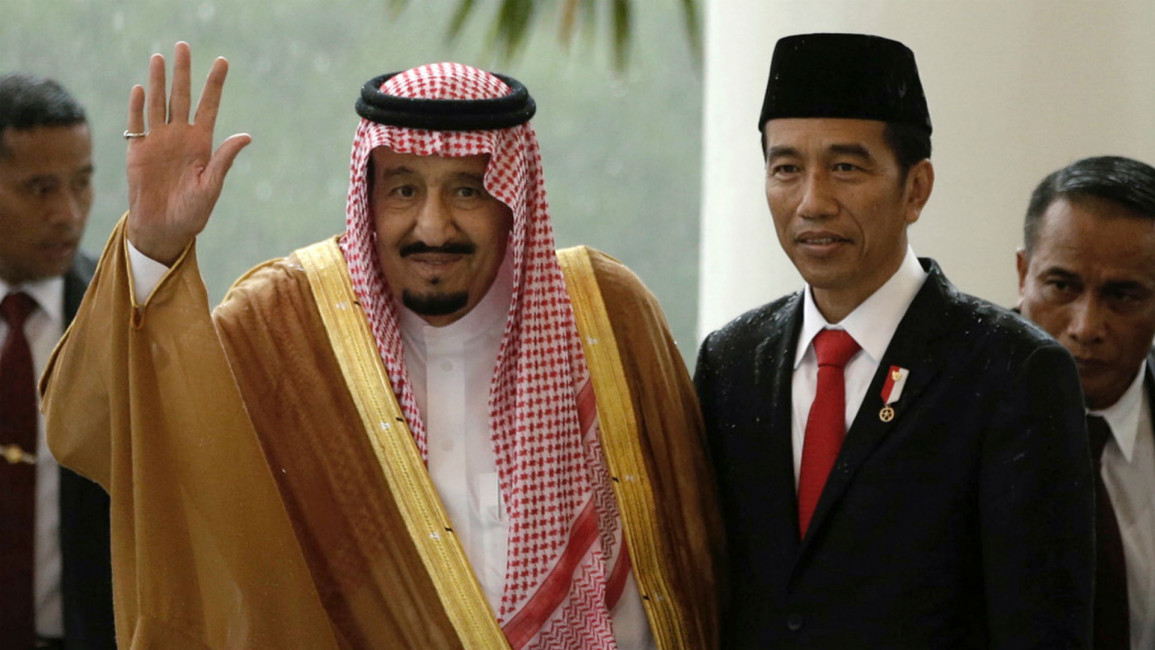King Salman and 1000-strong entourage begin Indonesia investment mission
King Salman and 1000-strong entourage begin Indonesia investment mission
Saudi monarch breaks decades-long refrain from trips to Indonesia as efforts continue efforts to diversify investments for Riyadh's cash-strapped coffers.
2 min read
King Salman was received by Indonesian President Joko Widodo in Jakarata Wednesday [AFP]
King Salman bin Abdulaziz began his tour of Indonesia on Wednesday, becoming the first Saudi monarch to visit the South East Asian nation in almost 50 years.
The king, who arrived in Java with an entourage of around a thousand people, has made the rare trip in a bid to strengthen economic ties with the world's most populous Muslim-majority country.
"The government must catch this opportunity. Don't let it go to waste, this is what we hoped for," Fadli Zon, Deputy Speaker of Indonesia's House of Representatives, said.
"From what I heard, they plan on to invest in a number of sectors such as oil refinery, low-cost housing, and tourism."
Despite making an impressive arrival with almost 460 tons of equipment that included Mercedes limousines and elevators.
The Saudi monarch's visit is part of a broader plan to diversify his kingdom's sources of income and wean itself off dependence on oil.
This plan includes boosting tourism and pilgrimage services, which are of key interest to Indonesia - home to around 13 percent of the world's 1.6 billion Muslims.
Indonesia will likely emphasise this during negotiations over their annual Hajj and Umrah pilgrimage quotas.
Indonesia's government has said that the trip will see the Saudis make around $25bn in investments. Deals that are expected to be signed include an investment of $6bn by the state-owned Aramco oil company.
Also tied in with the trip is an aim to open more Saudi-funded Islamic schools in Indonesia, as well as to increase the number of religious scholarships in the island nation.
This aim has raised eybrows among many who are concerned about Saudi Arabia's own brand of ultra-conservative Islam influencing Indonesia's more open approach to the faith.
"From Indonesia's perspective, we need to be careful not to swallow their concept of 'moderate Muslim' wholly, because what's considered moderate for Saudi is different from Indonesia," Zuhairi Misrawi, a member Nahdlatul Ulama, Indonedia's largest Islamic organisation, told the BBC.
"The Indonesian government needs to anticipate this. We need them to be firm to say to Saudi: Don't intervene in our ideology."



